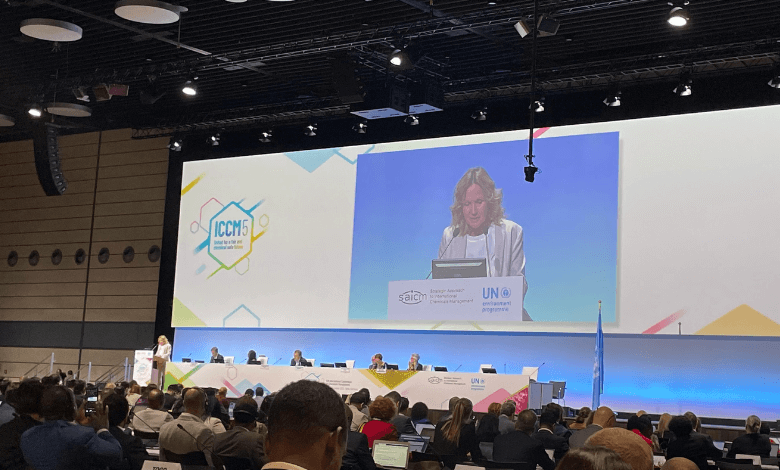Check Out: Can ICCM5 Help Lessen Chemicals’ Environmental Impact?

In many ways, chemicals have been helping improve countless lives. They have made medicines more effective, farming more productive and sanitation more widespread.
Yet, amid this transformative power lies a sobering truth: the unchecked proliferation of hazardous chemicals has placed the planet in a perilous place.
Every year, 1 billion people worldwide are exposed to hazardous substances as they flow freely into the environment, polluting natural resources and often making people sick.
Why Talks On A New Chemicals Framework Are Crucial
For the last 15 years, the Strategic Approach to Internationals Chemicals Management has helped to guide the use of chemicals and reduce their impact on the planet.
Starting this week in Bonn, a number of different stakeholders will hold discussions on its successor at the 5th International Conference on Chemicals Management (ICCM5).
Policymakers, industry players, scientists, NGOs and other stakeholders will hold meticulous discussions on an ambitious plan to address the risks emanating from chemicals
.Sheila Aggarwal-Khan (SAK), Director of Industry and Economy at the UN Environment Programme, has shared key insights into what is at stake at ICCM5.
Can ICCM5 Help Lessen Chemicals’ Environmental Impact?
The event aims to bring together a diverse group of stakeholders to collectively address challenges in chemicals and waste management, SAK noted.
Continuing, she added the primary goal is to adopt a new framework that includes targets that can change behaviour and scale up financing for the sound management of chemicals.
When asked about what governments could do about the problem, SAK said the stakeholder has a vital part to play in shaping policies and regulations that guide chemical management.
Additionally, she also elaborated on how financial support is essential to support developing countries that often have limited resources, infrastructure and technical expertise.
In an effort to help establish robust chemical management systems, developed countries and international organisations can provide technical assistance to developing nations.
What Can Businesses Do To Limit The Damage?
Sheila Aggarwal-Khan highlighted three main things businesses can do to limit the damaging effects of chemical pollution, including avoiding or minimising the use of hazardous substances.
ALSO READ: Termosolar Panama Helping Caribbean Paradise Abandon Fossil Fuels
Second, those producing chemicals and those using chemicals in their products can ensure their manufacturing practices do not have a pollution footprint.
Finally, businesses can ensure their products are able to stay in use as long as possible, taken back for repair, resale or reuse, and are recycled.



